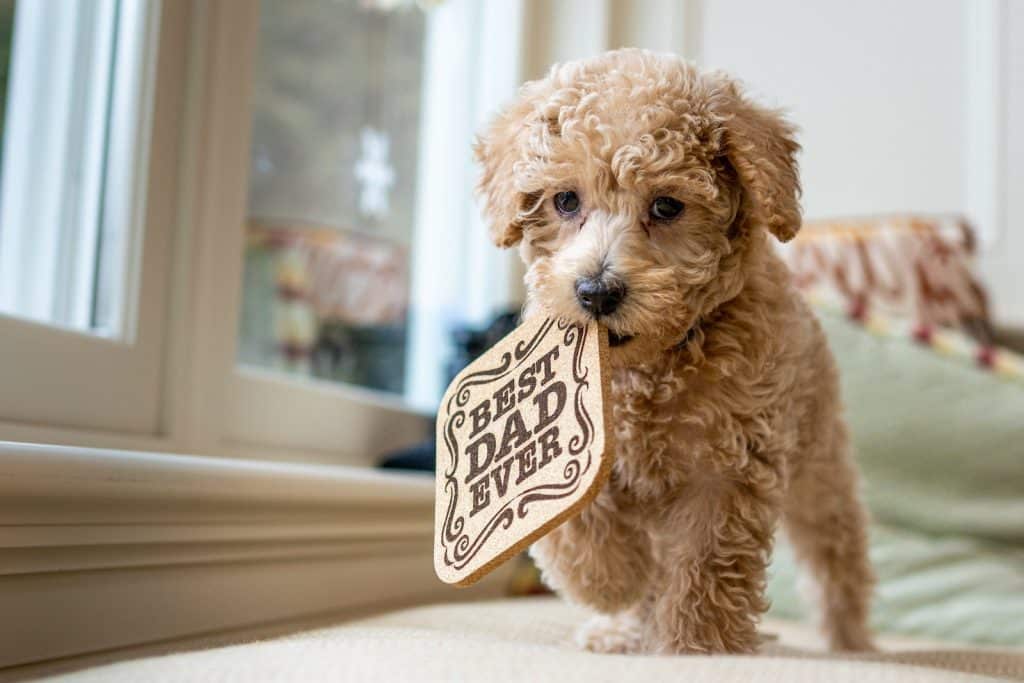
The Corkie has a playful and perky personality that is sure to win your heart. It loves to please. The Cookie is a wonderful pet for seniors, families, and singles. It was developed by crossing a Cocker with a Yorkshire Terrier. This breed is a super-smart and affectionate dog that’s great for people looking for a low-shedding pet.
Breed Overview
Colors:
white, black, tan, sable, blue, red, cream, silver, brown
Compatible with:
Singles, seniors, families with children and other pets, apartment-dwellers, people who are allergic to dogs
Temperament:
Highly trainable, loyal, loving, intelligent, and eager to please
You need to be aware of a few things before you get a Cookie. This comprehensive guide will answer your questions regarding Corkie’s care.
Cookie Characteristics
Energy:
Low-energy dogs need minimal physical activity, while high-energy dogs are in need of a lot of mental and physical stimulation. When choosing a puppy, it’s crucial to ensure that their energy level matches your lifestyle.
Trainability:
Dogs that are easy to train learn prompts and actions more quickly, with less training. Dogs who are more difficult to train require a little bit of patience and practice.
Health:
Some breeds of dogs are more susceptible to genetic problems than others. It doesn’t necessarily mean that all dogs will suffer from these problems, but some are more susceptible than others.
Lifespan:
Some breeds have a shorter lifespan than others due to their size, or genetic health problems. The lifespan of your dog is also affected by proper exercise, nutrition, and hygiene.
Sociability:
Some dog breeds have a more social disposition, towards both humans and dogs. Social dogs are more likely to approach strangers and ask for scratches and pets, whereas less social dogs tend to be more reserved and cautious. It’s important that you socialize with your dog, regardless of the breed.
Corkie Puppies

The Corkie, a playful and affectionate hybrid dog, will give you endless loyalty and love. The Corkie was created by deliberately breeding a Cocker Spaniel and a Yorkie. It is not a mix. She is a crossbreed, which means she has the best of both her purebreds. The Corkie is a small, sensitive dog that does well in both a big house and a smaller apartment. Corkies can’t be left alone for long periods of time. They are social dogs. This breed is not suitable for people who travel frequently or work long shifts.

Temperament & Intelligence in the Corkie
Corkies have a high level of affection and are playful, obedient, and social. She will not hesitate to show how much she loves you! Corkies, as we have stated previously, are prone to separation anxiety. Corkies are sensitive dogs and need constant companionship. She may resort to destructive chewing or excessive yapping if left alone for a long time.
What breeds are good for families?
Absolutely! Corkies are wonderful pets for both families with young children and those with older ones. To ensure that your Corkie is confident and calm when meeting new people, early socialization and training is essential. Keep an eye on your children whenever they are playing with your Corkie.
Can this breed get along with other pets?
Corkies are social butterflies and make a great addition to any household with multiple pets. She is good with cats and other dogs. Corkies may be prone to chasing and pouncing on small pets due to the Yorkie’s past as a matter. Never leave her alone around rabbits, hamsters, or other small animals.
What to know when owning a Corkie
Here’s all you need to learn about caring for your Corkie now that you’ve learned about its playful personality!
Food & Diet Requirements
Corkies can be small and energetic. You’ll want to make sure you feed your dog high-quality kibble to match her high level of activity and weight. Divide the two cups of premium food into two daily meals. You will spend between $30 to $60 per month. Make sure your dog has clean, fresh drinking water at all times.
Exercise
Corkies are energetic and spunky dogs, thanks to their terrier background. She can live in an apartment but still requires at least one hour of vigorous activity every day. Every day, walk your Corkie for about one mile. If you do not have a yard to walk your Corkie, consider taking her to a park for dogs or enrolling her in daycare.
Training
Corkies can be trained easily. Corkies are eager to please and love to learn. This hybrid breed responds best to positive reinforcement and consistent training. To see steady progress, give your Corkie lots of praise, yummy treats, and encouragement. She’ll soon be able to learn more complex tricks!
Grooming
Corkies are hypoallergenic dogs, which means they don’t shed nearly as much as some other breeds. She does need daily brushing using a de-shedder and slicker brushes to keep her thick, tangle-free coat. Trim her nails and clean her eyes and ears. Brush her teeth and her teeth.
Health Conditions
Minor Conditions
- Retinal dysplasia
- Lip fold pyoderma
- Seborrhea
Serious Conditions
- Patellar luxation
- Ectropion
- Entropion
- Exposure keratopathy syndrome
The Corkie is a hardy dog that can develop health problems later in life. Your Corkie will remain healthy for her entire life if you take your dog to wellness appointments and perform tests such as x-rays or blood tests.
Male vs female
Corkies are bigger in males than females. Both genders share the same temperament.
Three little-known facts about the Corkie
1. Cocker Spaniels Traveled With Pilgrims
That’s right! Many experts believe the Cocker Spaniels of today can be traced to two dogs on the Mayflower.
2. Yorkies are actually working dogs
Yorkies, despite their small size, were intended to be working dogs. The small size of the Yorkies was useful for hunting rats and other pests at clothing mills. Today, Yorkies are often considered companion dogs.
3. The Coat of Many Colors
Corkies are available in many colors including black, white, blue, brown, and cream.
Final Thoughts
Consider adding a Corkie as a wonderful little dog to your family if you are in the market! The Corkie is a great dog for children and other pets. It’s intelligent, affectionate, and fun! This breed is not for those who travel a lot or don’t spend much time at home.
The Corkie is a great dog for any household, whether you are single, live in an apartment or house, or have a big family.
What exactly is a corkie?
The phrase ‘corky’ is probably familiar to most of us. But what exactly is a corky? A corky is caused by sharp damage to the muscle, which produces bleeding deep inside the muscle. A contusion is a medical name for this. It is frequently caused by a direct hit to the muscle from an item or by coming into touch with another person.
Is Corky a real name?
Corky’s meaning in Irish Baby Names is “hill hollow.”
How do you pronounce corkie?
adjective, corkier, corkiest. of or relating to cork; corklike.
What harm can a corky do?A serious corky will prevent the player from continuing. They will have decreased strength and mobility and will walk with a limp. Depending on the degree, timing, and complications In severe circumstances, return to play might take up to 8 weeks.
What does it feel like to be a corky?
Movement causes pain and stiffness, as well as a reduction in the range of motion of the involved joints. Pain causes muscle weakness. Touch sensitivity. Swelling and bleeding beneath the skin might induce shock in extreme situations.
What is the best way to tell whether you have a corky?
Pain from the shock, swelling and bruising, limited mobility, and diminished power are all common indications of a corky. The first step is to stop any more bleeding. Ice for 20 minutes every hour for the first 72 hours to reduce edema and bleeding.
How can you keep Corkys at bay?
Within the first 48-72 hours, no heat, alcohol, running (exercise), or massage. All of these factors have the potential to aggravate the bleeding during the earliest stages of recovery. However, once the initial bleeding has been controlled, it is critical to gradually resume some activity in order to exercise the wounded body part.
Can you make a corky stretch?
Stretching, massage, and heat should be avoided, and actions like sprinting, leaping, lunging, squatting, and hopping should be avoided at first to prevent additional damage and let the body recover.
A corkie is what sort of dog?
The Corkie is a small to medium-sized dog that is a cross between a Cocker Spaniel and a Yorkshire Terrier. They stand around 12 inches tall and weigh about 15 pounds on average.